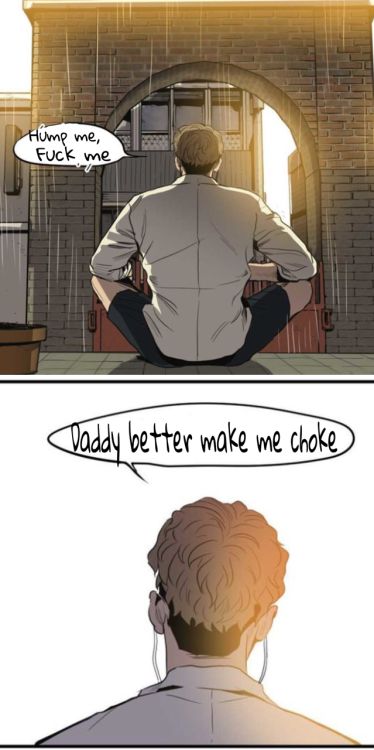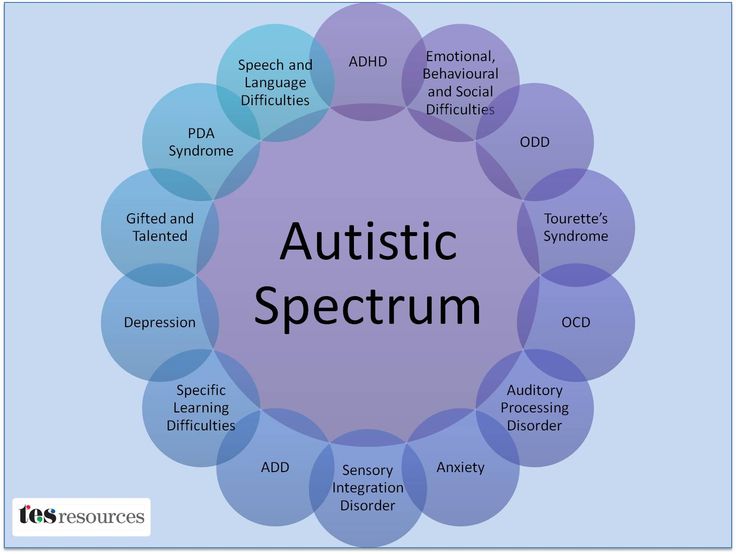Am i being stalked
Stalking - Victim Connect Resource Center
Stalking
Stalking is a course of conduct directed at a specific person that would cause a reasonable person to feel fear. Unlike other crimes that involve a single incident, stalking is a pattern of behavior. It is often made up of individual acts that could, by themselves, seem harmless or noncriminal, but when taken in the context of a stalking situation, could constitute criminal acts. Legal definitions of stalking differ depending on where you live; however stalking is a crime under the laws of all 50 states, the District of Columbia, the U.S. Territories, and the Federal government. Stalking is serious, often violent, and can escalate over time.
What is Stalking?While this list isn’t exhaustive, you may be a victim of stalking if someone:
- Repeatedly calls your phone, including hang-ups
- Follows you and shows up wherever you are
- Sends unwanted gifts, letters, texts, or emails
- Damages your home, car, or other property
- Monitors your phone calls or computer use, possibly through spyware
- Uses technology, like hidden cameras or global positioning systems (GPS), to track where you go
- Drives by or lingers near your home, school, or work
- Threatens to hurt you, your family, friends, or pets
- Performs other actions that control, track, or frighten you
- Uses other people to try to communicate with you, like children, family, or friends
If you have been stalked, you may:
- Be fearful of what the stalker is capable of doing
- Feel vulnerable, unsafe, or not know who to trust
- Feel depressed, hopeless, angry, anxious, irritable, on-edge, and hypervigilant
- Have flashbacks, disturbing thoughts, feelings, or memories
- Feel confused, frustrated, or isolated because other people don’t understand why you are afraid
- Miss work or school for fear of seeing your stalker
- Change your normal or preferred social media habits
While there is no universal set of steps that will work for everyone, these actions may help you feel in control of your life again:
- Call 911 for Immediate Assistance – You know yourself and your situation better than anyone.
Trust your instincts and call for help if you feel you are in danger.
- Alert Others – Tell trusted friends, family, neighbors, coworkers, and/or your HR department to keep an eye out for suspicious activity and so they don’t mistakenly give out information to someone pretending to be a loved one.
- Connect with an Advocate – Advocates can often be found at local domestic violence and/or sexual assault agencies, police departments, and district attorney’s offices. Advocates can help explain local stalking laws, walk you through filing a protective order, connect you with local services, and help you develop a safety plan.
- Document Every Incident – Make a log of encounters with the stalker, hang-up calls, and public sightings. Save all messages, emails, and your call history. Consider using this incident and behavior log form from the Stalking Prevention, Awareness, & Resource Center (SPARC).
- End All Contact – Sometimes this is easier said than done, but try not to answer calls or messages, even if you are requesting that the stalker stop.
 Any contact may encourage the stalker to continue the stalking behavior.
Any contact may encourage the stalker to continue the stalking behavior. - Take Threats Seriously –A direct threat against you is an obvious sign of danger. A stalker can also use threats of suicide or self-harm to manipulate you into staying in contact or a dangerous situation.
- Create a Safety Plan – Develop a personalized plan to keep yourself safe. Find help doing this here or connect with an advocate for assistance.
- Prepare Your Children – Teach your children what to do if there is an emergency, like where to hide if there is danger in the house, or how to call the police or a trusted person for help.
The Stalking Prevention, Awareness, and Resource Center (SPARC) offers a variety of information related to stalking, including information on stalking, safety planning, and other resources.
Technology Safety & Privacy: A Toolkit for Survivors from the National Network to End Domestic Violence contains safety tips, information, and privacy strategies for survivors when using technology.
Visit our VictimConnect Resource Map for additional resources or contact the VictimConnect Resource Center by phone or text at 1-855-4-VICTIM or by chat for more information or assistance in locating services that can help you or a loved one after experiencing stalking.
10 Signs That You Are Being Stalked
By Stephanie Tallman Smith
Reviewed:
Fact-Checked
The Bureau of Justice Statistics suggests that a majority of women who are being stalked know their stalker in some way.Sinan Saglam/Getty ImagesStalking is one of the most dreaded crimes against women. Do you know the many forms that stalking can take, or and what you can do about each? Read on for expert tips for recognizing and stopping a stalker...
One woman in 12 will be stalked at some time during her life, according to a study conducted by the U. S. Department of Justice.About 75% of women know their stalker in some way, according to the Bureau of Justice Statistics (BJS). That’s why so often women don’t believe the situation is potentially dangerous.State laws also vary in their definition of how much fear and emotional distress a person must cause his or her victim to be legally deemed as a stalker, the BJS reports.If you experience any the following 10 alarming behaviors on at least two separate occasions, you’re probably being stalked.
S. Department of Justice.About 75% of women know their stalker in some way, according to the Bureau of Justice Statistics (BJS). That’s why so often women don’t believe the situation is potentially dangerous.State laws also vary in their definition of how much fear and emotional distress a person must cause his or her victim to be legally deemed as a stalker, the BJS reports.If you experience any the following 10 alarming behaviors on at least two separate occasions, you’re probably being stalked.
Knowing what qualifies as stalking under state and federal law can help you determine if you’re being targeted, as well as what you can do to stop it.Stalking Sign #1: Lurking Around Your Workplace or Neighborhood
Are you constantly bumping into the same guy after work or at the grocery store?Does he park next to you in the garage or near you on the street? Running into him every night at the gym does not make him a stalker. But seeing him later at the mall or lurking in your neighborhood when you get home may be cause for concern. Occasional meetings could be coincidences if you live or work in the same area. But repeated meetings could signal stalking.
Occasional meetings could be coincidences if you live or work in the same area. But repeated meetings could signal stalking.
Stalking Sign #2: Watching You
A “watcher” follows you from a distance. He or she gathers personal information about you, your friends and family.They may photograph you, ask your friends about you or collect information from other sources such as public records or online research firms. Some go so far as to hire a private detective to follow you in an attempt to learn every detail of your private life.If you feel you’re being watched, or you often recognize the same person in a crowd, you may be under the surveillance of a stalker.Stalking Sign #3: Repeated Phone Calls
Numerous phone calls from someone you aren’t seeing socially on a regular basis can spell danger.
How much is too much? Multiple calls every week from someone you know only casually is likely reason to worry, though calling can take the form of hang-ups or long silences on your voicemail too. If you know who the person is, tell him or her firmly to stop. If the calls persist, keep a log of the times he or she calls and inform the police.Stalking Sign #4: Giving Inappropriate Gifts
If you know who the person is, tell him or her firmly to stop. If the calls persist, keep a log of the times he or she calls and inform the police.Stalking Sign #4: Giving Inappropriate Gifts
Some stalkers start out by sending unwanted flowers or gifts.When their affections are not returned, they may escalate the situation by sending more gifts, including those that are inappropriate or even pornographic.
A typical tactic is to send the gifts to your office. This causes you embarrassment and distress as you’re forced to acknowledge the gifts to your peers, even if only to say you have no idea who sent them.Some stalkers follow up their gifts by calling to see if you received them.If you have a company receptionist, ask him or her to screen deliveries for you and refuse those from your suspected stalker. The receptionist also may be able to describe the person who dropped off the package.Stalking Sign #5: “Rescuing” You
Anyone can experience a flat tire or breakdown on the highway, of course, but many stalkers enjoy playing the hero. So they’ll create situations that require you to be rescued – just when they happen to be passing by.
So they’ll create situations that require you to be rescued – just when they happen to be passing by.
These incidents can include a suspiciously sudden flat tire, a car that won’t start or running out of gas unexpectedly. The stalker appears and gallantly changes your tire or has a spare gas can that solves your problem.As tempting as their assistance may be, politely decline and tell the person you’ve already called for help and they’re on their way. Then find a safe place to wait.Some hero-complex stalkers are even more subtle in their approach.They may follow you on a rainy day and offer the use of their umbrella. Or they may pick up your keys, then present them to you, saying you must have dropped them.While it could be just gentlemanly behavior, it’s best to be cautious with anyone you don’t know.
Stalking Sign #6: Manipulating You Into Interacting
Stalkers look for any way to interact with their victims. Some even try to manipulate the object of their stalking into contact by filing a frivolous lawsuit. These legal tactics can range from the ridiculous to the ruthless. The stalker draws you into his orbit by forcing you to defend yourself.Other forms of manipulation include threatening to hurt themselves, thereby forcing their victim to intervene. They may talk about suicide or vow to hurt someone else if you don’t return their affections.If you find yourself being manipulated into behavior that you otherwise wouldn’t condone, you’re likely being stalked and should report the person to the police immediately.
These legal tactics can range from the ridiculous to the ruthless. The stalker draws you into his orbit by forcing you to defend yourself.Other forms of manipulation include threatening to hurt themselves, thereby forcing their victim to intervene. They may talk about suicide or vow to hurt someone else if you don’t return their affections.If you find yourself being manipulated into behavior that you otherwise wouldn’t condone, you’re likely being stalked and should report the person to the police immediately.
Stalking Sign #7: Using the Internet to Follow You
Some stalkers send emails and texts to their victim daily. Or they’ll leave Facebook, Twitter or Instagram messages and photos.In some cases, their messages include links to suggestive websites. That’s a big red flag.Internet stalking is often an extension of physical stalking, though not always. In some cases, the stalker may not even know the real identity of his victim. He may have only seen his or her profile on social media and become obsessed. This does not make Internet stalking (also called cyber-stalking) acceptable.Most law enforcement agencies have cyber-crime units, and Internet stalking is treated as seriously as physical stalking.If you’re being harassed online, report what’s happening to your Internet service provider as well as local law enforcement.
This does not make Internet stalking (also called cyber-stalking) acceptable.Most law enforcement agencies have cyber-crime units, and Internet stalking is treated as seriously as physical stalking.If you’re being harassed online, report what’s happening to your Internet service provider as well as local law enforcement.
#8 Isolating You From Loved Ones
Stalkers often try to isolate their victims from family and friends.They may share information designed to damage the person’s reputation (regardless of whether or not the information is true), hoping to alienate the victim from those closest to her.When hurtful or damaging information is made public, your first reaction may be to withdraw. But that’s what your stalker wants. He will then try to move in, becoming your knight in shining armor.But don’t turn to your stalker for comfort, even if he seems to be the most sympathetic person in your life. Instead, do your best to stay strong and maintain your social circle.
Stalking Sign #9: Acting Violently or Threatening You
Using threats or violence to frighten their victim is a common strategy for some stalkers.Your car may be vandalized or your home burglarized. If you suspect a stalker is to blame, or ifyou receive threats or someone claims responsibility for the crime, report it immediately to the police.The information you provide may help the police piece together evidence from the crime and take action against your stalker at the same time.Stalking Sign #10: Too Much Unwanted Contact
Perhaps no particular incident stands out in your mind as dangerous, but when you look at the entire picture, you’re alarmed.For example, maybe you’ve simply experienced repeated unwanted contact from the same person.If it’s someone you know, tell him that he’s making you uncomfortable.
If the situation continues, report him to the police. If it’s someone you don’t know, go directly to the police. Don’t continue contact or communication with a suspected stalker. A stalker counts on your feeling that his actions are ordinary demonstrations of affection. “If you’d just give him a chance,” he tells you. Resist the urge; he may be dangerous.
A stalker counts on your feeling that his actions are ordinary demonstrations of affection. “If you’d just give him a chance,” he tells you. Resist the urge; he may be dangerous.
By subscribing you agree to the Terms of Use and Privacy Policy.
Mental Illness Signs, Symptoms, Treatment, and More
By Nuna Alberts, LCSWA Therapist Speaks: Yes, Your Job Affects Your Mental Health — for Better or Worse
By Allison Young, MDReGain Therapy 2022: Reviews and Costs
ReGain offers relationship therapy via video, phone, and live chat for both couples and individuals with an ongoing financial aid program.
By Savannah Bacon
6 Best Online Psychiatrist Platforms of 2022
We’ve researched a variety of mental health platforms to see which ones stand out from the rest. Here’s everything you need to know about getting psychiatric...
Here’s everything you need to know about getting psychiatric...
By Sara Lindberg
All About Fear: How It’s Connected to Health and How to Face the Ones You Have
By Markham HeidBrightside Therapy: Reviews and Costs in 2022
Learn why Brightside therapy could be a good fit if you experience symptoms of anxiety or depression, have health insurance, or want access to both medication...
By Savannah Bacon
Stalking: what to do and how to protect yourself if you are being chased?
For many of us, harassment by another person seems distant and unrealistic, because usually dangerous mafiosi, world-famous celebrities or fatal beauties are subjected to it, and such a “compliment” does not shine for the average person.
The creative industry of cinema, literature and music, in turn, romanticizes persecution and turns stalkers from dangerous predators into brutal sex symbols. On screen, it may be true, but when faced with a stalker in life, a rare girl will be flattered by unwanted attention, no matter how attractive her stalker may seem.
All characters' names have been changed at their request to maintain privacy.
How to recognize a stalker
Stalking is a manifestation of unwanted attention from another person, harassment, tracking and similar actions that cause discomfort.
Manifestations of stalking can be very different: from annoying calls and messages, round-the-clock monitoring of updates on the victim's pages in social networks and unsolicited attention to violence, physical harassment, threats and gross violation of personal space.
Stalking can often seem like innocent courtship or an attempt at a pleasant surprise.
Came to you in the middle of the night to give a bouquet (or to check if you are really at home) - an incorrigible romantic. And he doesn’t want to hear that you are able to reach the door of the apartment on your own (or tries to find out the details of your home address) - a caring man. Appears at events where he was not invited and zealously revolves around you (or is simply obsessed with the fact of your existence) - an alpha male with the manners of an owner.
Of course, suspicions should not lead to paranoia, but a little caution will not hurt either.
Intrusive actions eventually turn into skillful manipulation and psychological abuse - especially if you are in a romantic relationship with a stalker.
Stalking cannot be justified in any way. This is not "character traits", not "this is how love happens", not "basically he treats me well".
This is a violation of your personal boundaries, pathological permissiveness and a crime, most often associated with mental disorders.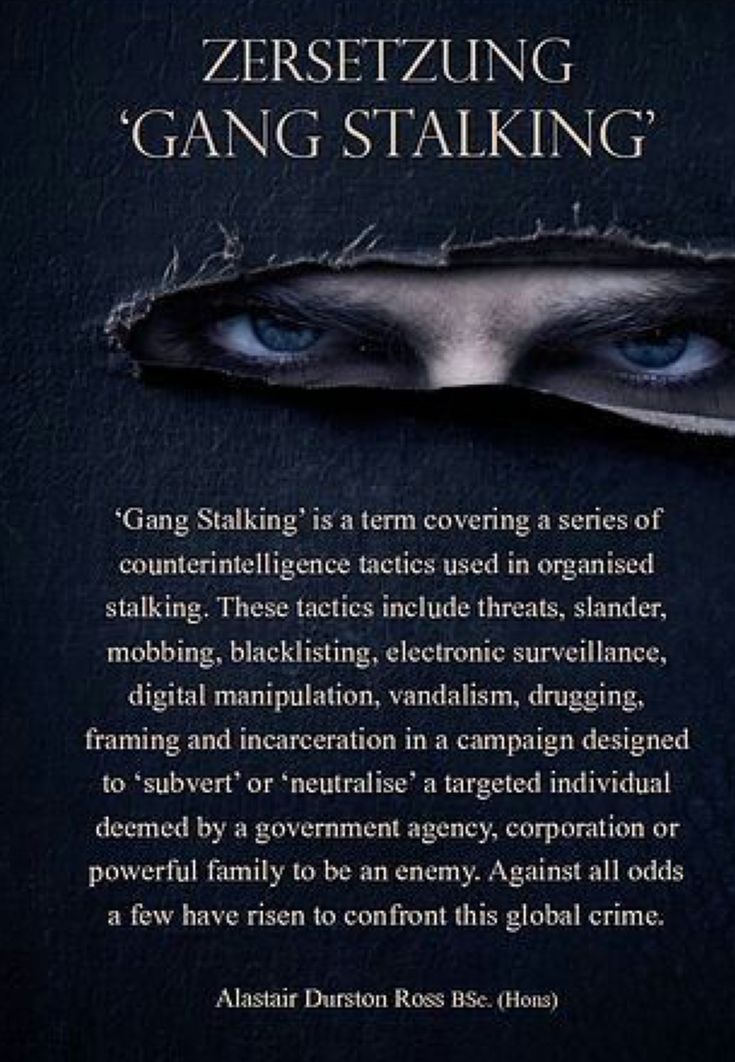
According to a study by a doctor from the Department of Forensic Psychiatry at the St. Nicholas Hospital, stalkers are divided into three main groups.
Real world stalkers
Anastasia:
“I tried to get my husband to divorce me for several years. When the paperwork was finally completed, and I thought that I had finally burned my bridges, he suddenly began to appear everywhere. At first, it seemed like unpleasant, but still random meetings in public places (I attributed it to a cramped city), and later turned into obsessive pestering.
The ex-husband hung around near my work, pretending that he was there "accidentally", also "accidentally" drove past my house at night and also "accidentally" used any excuse to be alone with me, give me a ride home and recall past relationships.
Now he rarely appears, and I have already learned to cope with his episodic manifestations of stalking.”
Aggressors who prefer to resolve the issue with violence
In one of the episodes of the Norm podcast dedicated to the problems of stalking, the heroine tells the story of many years of persecution by her ex-partner.
To get rid of the stalker, she had to change her number and move to another city, but he was still obsessed and found her. Now the heroine of the story has to change her place of residence every few months. She was driven into such realities by a person who did not decide to part.
Each of the forms of stalking can be both initial and advanced. In addition, there are borderline manifestations of stalking, which are typical for people with mental disorders and emotional instability. Such can morally humiliate the victim, threaten her with violence, suicide or the murder of relatives and friends.
Borderline stalking is almost always based on envy, revenge, or the offender's desire to prove his own rightness of certain actions.
It is important to remember that any form of stalking carries a certain danger. Don't underestimate her.
Cyberstalkers
Ramina:
“Among my followers on Instagram, there is an unfamiliar girl who has known me since the embarrassing comments on VKontakte publics.
She wanders from my Twitter to Insta, from there - VK and back, remembers the accounts of all my ex-boyfriends, where I celebrated my birthday before last, my father's name and how many jobs I have changed over the past few years.
Sometimes she seems to know better than I do what the Memories feature displays on my Instagram Stories today. At the same time, the girl is quite adequate - judging by her account, she lives in Russia, graduates from university and enjoys a full life, while not forgetting to show an unhealthy interest in my person. But it doesn't bother me much. In the end, she does not show aggression, which means that everything is not so scary.
Social media stalking
Today we have the ability to observe the activities of other people in real time thanks to the mobility of social networks, which expands the possibilities for stalkers who only need a few clicks to learn the details of extraneous lives.
Stalkers can be motivated by different feelings.
For example, expressed sympathy, the need to control another person, the desire to get close, suspicions of infidelity, acute hostility, and more.
Aliya:
“I wouldn't call myself a top level stalker, but I agree that I have some tracking skills.
A handsome young man posted a story from an evening gathering with friends, in the frame of which a girl with bright red hair flashed. I decided to look up her page to check the status of their relationship. In the few photos in his profile, she was not marked, so it remained to check his subscribers, who turned out to be more than four hundred.
In order to save time, I checked the likes on the last post. There were no more than 70 of them. I scrolled through the accounts and found the profile of a red-haired girl with a bright avatar due to the color of her hair - everything took no more than a few minutes.
In the girl's stories there were photos of a more personal nature, from which I concluded that it was time for me to stop sympathizing with the busy guy. Stalking is not the most worthy occupation for a girl, but he helped me get rid of my love experiences.
Stalking is not the most worthy occupation for a girl, but he helped me get rid of my love experiences.
Out of ten of my acquaintances, seven use fake pages on social networks, and three more could simply not admit it.
Alua:
“I suspected that he might be cheating on me, but until the last moment I denied and ignored the prerequisites - frequent delays at work, the phone was switched off, detachment.
Somehow I was scrolling through Instagram and in the "Interesting" tab I noticed a photo from the account of an unfamiliar girl: gently clasped hands on the table, glasses of wine, candles .. and a piece of a man's scarf in the upper left corner. I myself chose this black scarf with red splashes for him. Of course, there may be many owners of such scarves in Almaty, but my intuition rarely fails me.
I screened every photo from the girl's account and studied the smallest details that were available - the design of her manicure, the shape of the earrings, the color of the purse, wardrobe items and stuff like that.
Unbeknownst to myself, I began to monitor her stories, even tried to hack into the account, but the hacker came out of me rather weak.
And then she made a stupid mistake by filming her hugging my boyfriend in the car. It turned out to be my husband. Thank you Instagram for not letting me live in a scam."
Checking the account of a former partner, viewing the stories of an old friend whom you don’t want to remind about yourself, monitoring the page of a girl you like but is busy who added you to the “Black List” - there are many reasons why we need a fake and this is not always stalking.
Where is the border?
It is important to grasp the line between the adequate use of information from social media accounts and gross violation of personal boundaries, emotional suppression and aggression.
Insta stories and live broadcasts give their active user the feeling of getting closer to their own audience, which can show whatever their heart desires. However, there is quite a difference between fans spying on a media personality who is willing to share the details of his life, and spying on unknown accounts living on your page around the clock in the hope of seeing updates.
However, there is quite a difference between fans spying on a media personality who is willing to share the details of his life, and spying on unknown accounts living on your page around the clock in the hope of seeing updates.
And if you imagine that, having crossed the border of online stalking, the stalker wants to go further and find out your home address or sneak around the office unnoticed, then it becomes really uncomfortable.
Elvira:
“We used to hang around the clock on Ask.fm, a service that allowed users to ask anonymous questions. Over time, it became less fun there: it turned out that in addition to fans, there are also ill-wishers who are not too lazy to once again remind you of your shortcomings.
My peculiar haters did not shun threats of persecution, which I tried to ignore, but every day it became more and more uneasy. It was clear that the mocking anonymous student was studying at my school or even in the same class as me, so he knew where my house was or what kind of bun he ate in the cafeteria today, and used these facts against me in messages, but this realization did not become less creepy .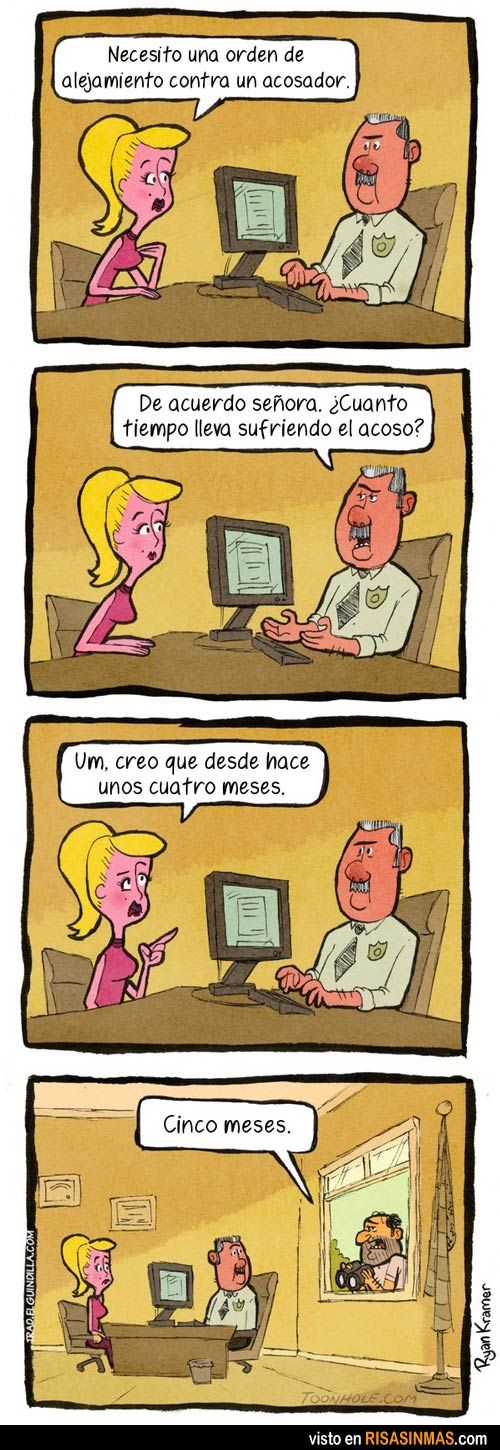
I began to develop mild paranoia, constantly feeling like I was being watched, or at least stared at. After a short time, I decided to delete the page on Ask, along with which my anonymous person disappeared.
Reverse side: what does the stalker experience?
Anuar:
“A boy who was closed in himself studied with me at school: he practically did not talk to anyone and behaved imperceptibly. We didn't know much about his family and life outside of school. A few years after graduation, there were rumors that the guy became active in harassing the girl who lives next door.
He seemed to have been blown away: he stood under the windows of her apartment, in a fit of tenderness offered a ride to work, and in the evenings in the yard he threw himself at her with his fists. At the same time, the girl never talked to him, and he thought that they had been dating for several years. He was later diagnosed with a personality disorder and is now in treatment. ”
”
The range of feelings that a stalker can experience is enormous: from delusional ideas “ I will achieve reciprocity at all costs ” to a sense of superiority “ I'm here dictating terms ."
Stalkers suffering from nervous pathologies or mental disorders cannot get rid of obsessive thoughts on their own, so they need the help of professionals. However, the presence of the disease does not justify their behavior.
People pursuing a sporting interest, through stalking, try to prove to themselves that "they are still worth something."
What should I do if I am being followed?
Criminal punishment for stalking in Kazakhstan decided to repeat the scenario of punishment for harassment - according to the law, it simply does not exist. But there are other nuances.
Each action of a stalker is a separate violation of the law, which allows you to file a complaint with law enforcement agencies. It turns out that stalking is a series of offenses if you are subjected to harassment, threats and violation of your personal freedom.
When should I contact the law enforcement agencies?
- According to Article 141 of the Criminal Code of the Republic of Kazakhstan, direct or indirect restriction of a citizen's freedom is punishable by a fine or imprisonment for a period of one month to a year.
- 142 An article of the Criminal Code of the Republic of Kazakhstan provides for the inviolability of private life - in case of its violation, punishment is provided in the form of a fine, community service or imprisonment for up to four months.
- Threats, according to Article 115 of the Criminal Code of the Republic of Kazakhstan, are punishable by a fine, involvement in public activities or imprisonment for up to sixty days.
- 131 An article of the Criminal Code of the Republic of Kazakhstan provides for punishment for insulting a person's personality, which can result in a fine of up to 100 MCI or 120 hours of community service. For the same action online, they are judged more strictly - a fine of 200 MCI or 180 hours of corrective labor.

How to help yourself?
- Don't panic, because the stalker feels the fear of his victim very well and tries to gain control over him.
- Based on the considerations of the first paragraph, do not change the place of study, work or residence. This can only be an option if your life is at stake.
- Carry on a dialogue with the stalker, which will help to record direct threats and insults towards you and your loved ones. Use the camera, voice recorder, video recordings and other features of modern gadgets. Remember that any evidence can help in court.
- Do not hide the fact of persecution from your close relatives and family. If they are able to help you, then don't be afraid to ask for help.
- Do not fall for manipulation, blackmail and conflicts. For you, this is a waste of emotional resources, but for a stalker, it is a pleasure.
- Don't become stalkers yourself. Remember that there is a fine line between watching a fake ex's stories and obsessively watching his life.
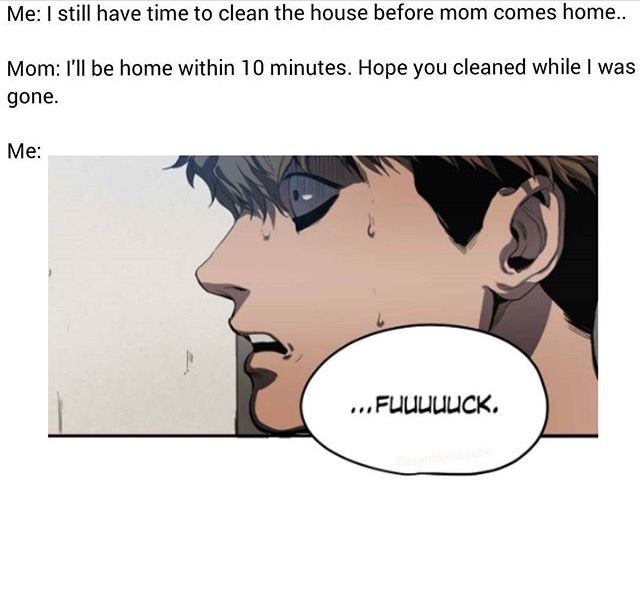 Every person has inviolable boundaries that must be respected.
Every person has inviolable boundaries that must be respected.
Read also:
How to prevent sexualized violence against children
META reported the first Facebook income in the history of Facebook
Trendes in the design for social networks
90009000 9 Instagram and Telegram
What should I do if I am being persecuted?
What should I do if I am being followed?
Important to know: n stalking or stalking can be very different. In one situation, a person can literally wait at home or work. In another situation, it may demonstrate unwanted intrusive attention on the Internet. But, in any case, the persecution is always dangerous, and it is always violence. Maria, a client of the Knowledge Stops Gender Violence project, shares her personal experience.
How it happens
“A stalker has been following me for a year now. I saw a person only once in my life, before that, we talked a little on social networks for a couple of weeks, although it’s even difficult to call it communication. When I wanted to stop communicating, the person was blown away. For a year now, with constant frequency, he has been writing to me wherever possible - at first I tried to explain to him normally that I simply did not want to communicate with him. Then I tried to ignore him, then I just sent obscene words in plain text. Then other people tried to talk to him - my girlfriend, my girlfriend's boyfriend, friends of my ex-husband - all my surroundings are aware of the situation. Nothing helps. I blocked him wherever possible, he created new accounts, bought new SIM cards - there were about 20 numbers blocked from him in the end. I had to change my phone number, remove myself from all social networks as much as possible or change my name. He is convinced that I am in love with him and just flirting and punishing him with deprivation of attention.
I saw a person only once in my life, before that, we talked a little on social networks for a couple of weeks, although it’s even difficult to call it communication. When I wanted to stop communicating, the person was blown away. For a year now, with constant frequency, he has been writing to me wherever possible - at first I tried to explain to him normally that I simply did not want to communicate with him. Then I tried to ignore him, then I just sent obscene words in plain text. Then other people tried to talk to him - my girlfriend, my girlfriend's boyfriend, friends of my ex-husband - all my surroundings are aware of the situation. Nothing helps. I blocked him wherever possible, he created new accounts, bought new SIM cards - there were about 20 numbers blocked from him in the end. I had to change my phone number, remove myself from all social networks as much as possible or change my name. He is convinced that I am in love with him and just flirting and punishing him with deprivation of attention. He thinks that I am writing to him from fake accounts. He says that we must be together, he loves me madly, and we are made for each other. Apparently, he has some kind of aggravation when he starts yelling aggressively, for example, he left messages for me on the answering machine that he would throw himself under the wheels of my car, and the sound of his skull crunching would haunt me for the rest of my life. Well, a lot of such nonsense. I don't want to wait for him to turn to threats or actions. He, thank God, does not know where I live, he only knows about the area. But I am very afraid that he will find me. I have a child, we live together, I'm afraid for myself and for the child.
He thinks that I am writing to him from fake accounts. He says that we must be together, he loves me madly, and we are made for each other. Apparently, he has some kind of aggravation when he starts yelling aggressively, for example, he left messages for me on the answering machine that he would throw himself under the wheels of my car, and the sound of his skull crunching would haunt me for the rest of my life. Well, a lot of such nonsense. I don't want to wait for him to turn to threats or actions. He, thank God, does not know where I live, he only knows about the area. But I am very afraid that he will find me. I have a child, we live together, I'm afraid for myself and for the child.
What to do
- collect information about the persecutor and evidence of persecution (audio recordings of conversations, photographs of messages, if there are witnesses, their names and phone numbers, etc.),
- describe the main facts during the entire period of persecution (include any frightening actions here): what, where, when,
- fill out this description as a statement, where you indicate that you are afraid for your life and health, for the health and life of the child, that you experience constant fears, that sleep was disturbed and appetite, if so, and that you are asking to be identified and prosecuted,
- send an application either by Russian Post or through the online reception on the website of the Main Directorate of the Ministry of Internal Affairs at the place of residence, for example, for Samara it is 63. mvd.rf, or even better, use both methods.
mvd.rf, or even better, use both methods.
What's next
“Sent an application online on the website of the Ministry of Internal Affairs. The next day, a letter arrived that the application had been considered and accepted and would be sent to the jurisdiction. A few days later, I get a call from the Homicide and Violent Crime Prevention Unit inviting me to take a survey. They explained to me: since I applied online, by default it is sent to the name of the Chief General of the Ministry of Internal Affairs for the Samara Region, by the way, I received a letter from his deputy that the application was accepted.
“I came and told everything again, the policeman wrote everything down. Absolutely adequate and understanding, in general, I am so surprised and delighted with the work of the police and the attitude. He said that they turn a lot to a similar situation, when a stalker from the Internet pursues. I left, the policeman said that he would now call him, said that he would keep him informed.